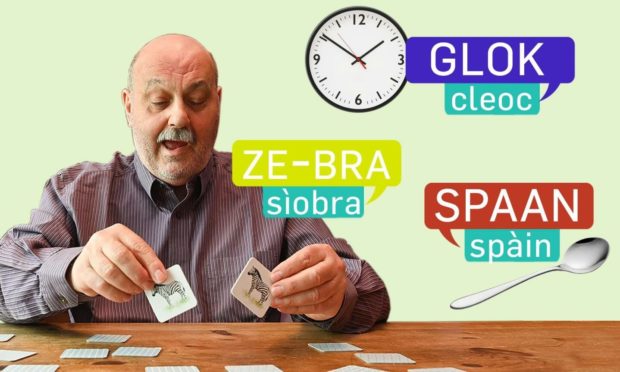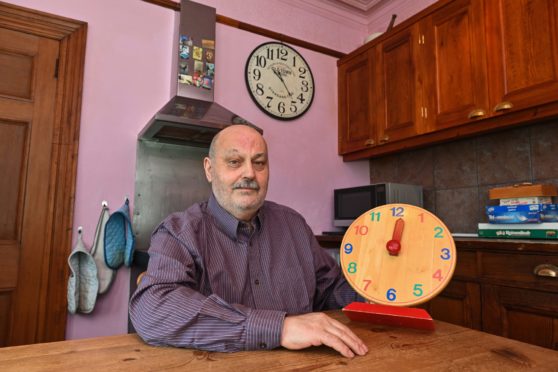If Finlay Macleod had been around 140-odd years ago, he would have seen it coming then.
As it is, his 60-something years on the planet have given him time to foresee the decline of Gaelic as a spoken, living language – and also come up with a plan to save it.
Mr Macleod runs the Moray Language Centre in Portessie – not where you’d expect to find the home of Gaelic, but his island roots are clear in his accent.
And now, after almost two decades of work, he is preparing to launch a plan that he says can save the language.
And a year on, the report’s author said not much has changed for the better.
But with money, time and effort being thrown into a revival, and an apparent enthusiasm for both the language and culture, could the future be brighter?
Save Gaelic: From the school to the home
Mr Macleod believes the focus for teaching the language has to move from the classroom to the home.
Basically, we need to go back to how Gaelic passed from generation in the times when it was a thriving first language in so many communities across Scotland.
Mr Macleod said: “Schools are the solution in terms of academic language, but in terms of social language, it need to be in the home and among family.”
“The problem is, Gaelic-educated kids can’t talk to their own kids in Gaelic.
“I can have someone speaking Gaelic quickly – in two months.
“It’s so different, the system that we use. We use the language of the home.”
Visit the Moray Language Centre Facebook page
What’s Gaelic for ‘pass the salt, please’?
Mr Macleod’s system concentrates on things that happen naturally in all or most homes, breaking it down room by room and task by task.
For example, 18 hour-long modules make up breakfast. Topics range from setting the table to cooking an egg and doing the dishes afterwards.
Other modules include feeding the baby, changing a nappy and doing the washing.
Intriguingly, he also has a module for what he calls “parentese” – when adults provide both sides of the “conversation” when speaking to a baby.
Although there are 2,000 hours in the full course, he reckons people can have a decent grasp of the language within 200 hours. He says this compares to 10,000 hours using traditional methods.
He said: “You can easily do it – it’s practical learning.”
Mr Macleod added: “I have seen people doing it in three weeks.”
Although he says a few months is more common.
Adult speakers hold the key to save Gaelic
Mr Macleod also believes the 20-45 age group are best-placed to learn with his method. This is a step away from the traditionally-held view that it’s hard to learn any new language as an adult.
He says it also key that people can do it in manageable chunks, around work and home life. Speed is also of the essence.
He said: “We need to try to ensure that people are able to learn the language quickly. It needs to happen within 12 months, or you lose 95% of people.”
His plan to save Gaelic is a network of interested people in an area – five could be enough. Mr Macleod is planning a series of meetings in hotspots across the country as soon as lockdown allows.
An early meeting point will be Glasgow, with 200 people interested already. Inverness and various west coast and island strongholds.
His plan is to get “bums on seats” to demonstrate there is an interest. Then, he will take his idea to the Scottish Government.
Minister: ‘We welcome suggestions’
The education secretary is, perhaps predictably, more upbeat about current methods to save Gaelic.
Shirley-Anne Somerville said: “We are working closely with local authorities across Scotland to realise their ambitions for Gaelic Medium Education (GME).
“We have seen steady growth in those entering GME – an increase of over 8% across Scotland in the last year, which shows that our policies in this area are working.
The “We look forward to seeing this number grow so that the language is retained and children are provided with the many benefits of bilingualism.
“We welcome suggestions from all stakeholder groups and individuals during this process to ensure the views of Gaelic communities are heard.”
More from the Schools & Family team
Another out-of-school club hits out at council rent charges
Brain breaks and less planning – could the Finnish method help our kids?


